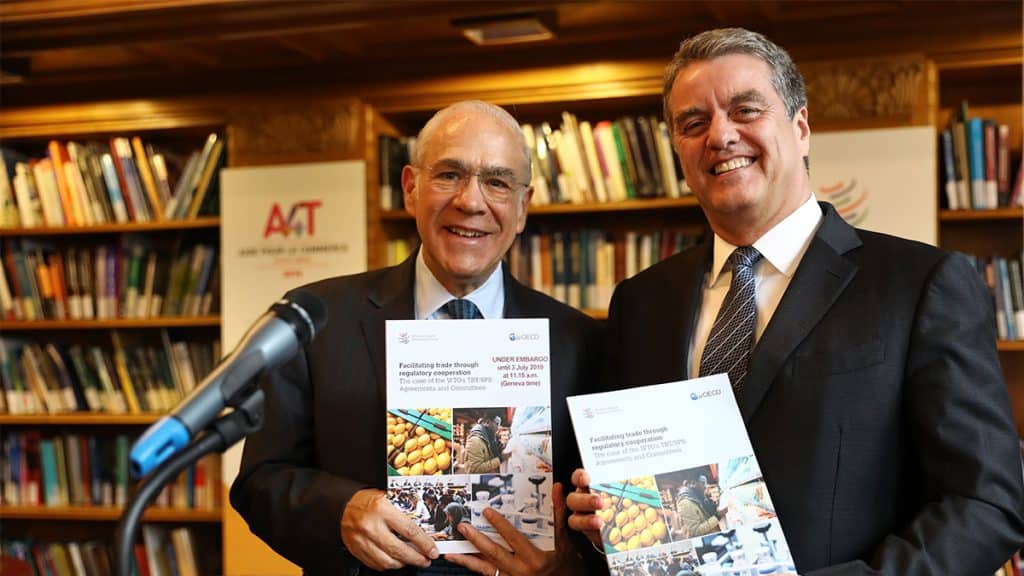Un informe OMC/OCDE pone de relieve la contribución excepcional de los Acuerdos OTC y MSF a la cooperación en materia de reglamentación

Según una publicación conjunta de la OMC y la Organización de Cooperación y Desarrollo Económicos (OCDE) presentada el 3 de julio en el marco del Examen Global de la Ayuda para el Comercio 2019, los Acuerdos de la OMC sobre ObstáculosTécnicos al Comercio (OTC) y sobre la Aplicación de Medidas Sanitarias y Fitosanitarias (MSF), y sus Comités conexos, ofrecen un marco excepcional para la cooperación internacional en materia de reglamentación y contribuyen a reducir las fricciones comerciales.
The publication «Facilitating Trade through Regulatory Co-operation: The Case of the WTO’s TBT/SPS Agreements and Committees» highlights how specific disciplines of the Agreements and practices of the related Committees promote international regulatory co-operation. These include the notification of draft measures, harmonization with international standards, and discussion of specific trade concerns.
The study, launched by WTO Director-General Roberto Azevêdo and OECD Secretary General Ángel Gurría, also makes recommendations on how to better leverage the transparency and cooperation opportunities provided by the TBT and SPS Agreements, which facilitate the setting of notification requirements for proposed regulatory measures with potentially significant trade effects.
The TBT and SPS Agreements strongly encourage WTO members to use relevant international standards as the basis for their measures, including disciplines on equivalence and recognition of foreign conformity assessment which help to ensure that traders do not face duplicative requirements or procedures when regulations differ across markets. These disciplines encourage the reduction of regulatory diversity and associated trade costs, according to the publication.
«In a nutshell, this is about members working together to bridge differences in their regulatory systems, including through increased dialogue, transparency and cooperation. This may happen, for example, by agreeing to align with international standards, or by mutual recognition. This involves many areas, for example, clinical trials for medical devices, veterinary certificates, safety of electronics, common food standards, or protecting consumers from harmful ingredients in cosmetics. The list goes on. This closer coordination helps to disseminate good practices and counter, to some extent, the costly effects of regulatory systems acting in isolation. In turn, it leads to lower trade costs and increased opportunities for traders everywhere,» said DG Azevêdo. Read his full speech here.
Ángel Gurría said this joint study comes on the back of an important volume of work between the two organizations and is especially pertinent in the current context of escalating trade tensions, which weaken investment prospects and growth potential putting a strain on the international trading system. «Today, more than ever, it is crucial that we continue to work together to pursue our goals in unison. We remain committed at the OECD to working with the WTO in many ways in the design, development and delivery of better trade policies for better lives,» he added.
The publication was jointly prepared by the OECD and the WTO secretariats in the framework of OECD work on international regulatory cooperation. It is part of a series started in 2014 that provides overviews of the structure, governance, instruments and processes of international organizations in support of international regulatory cooperation.
The joint publication can be downloaded here.
















